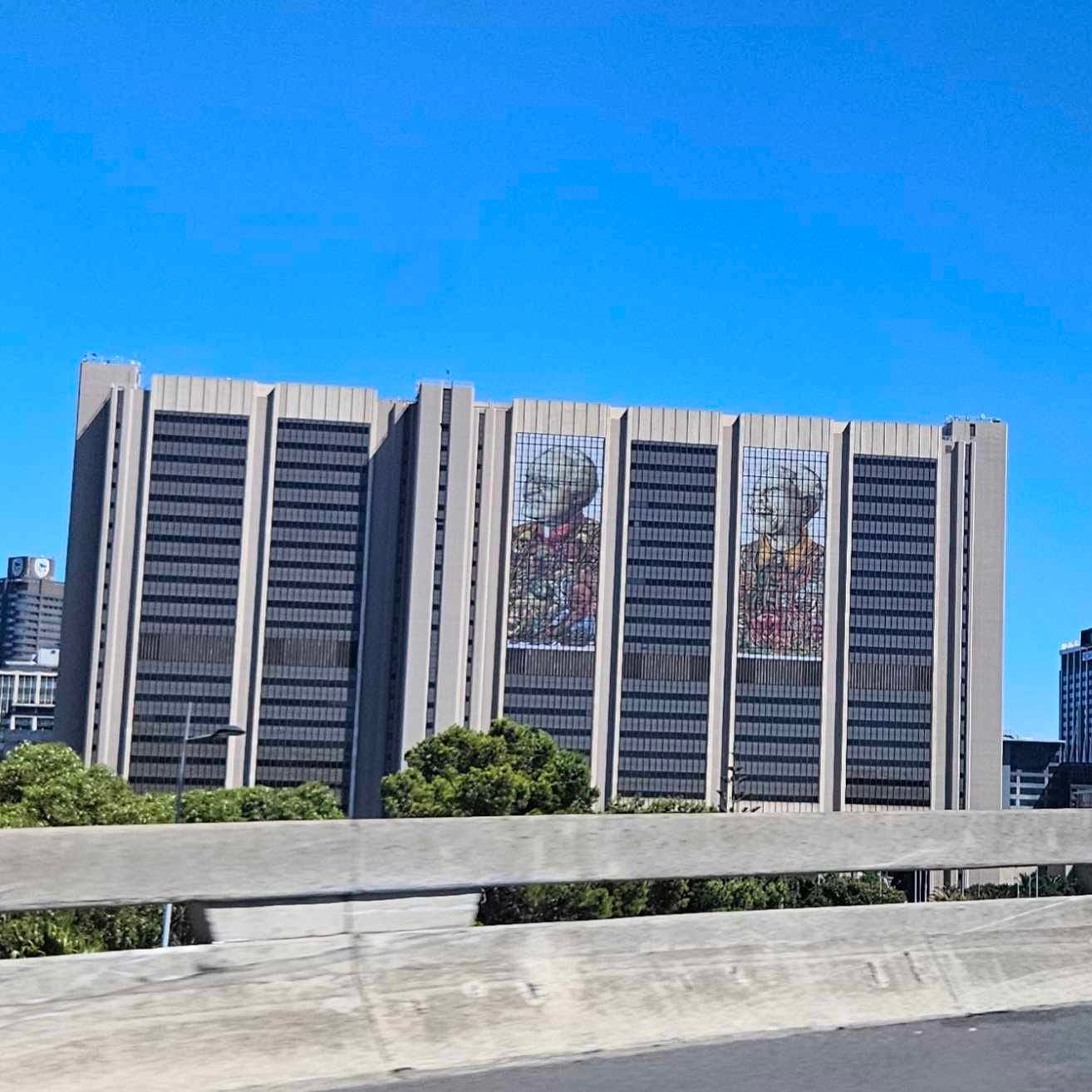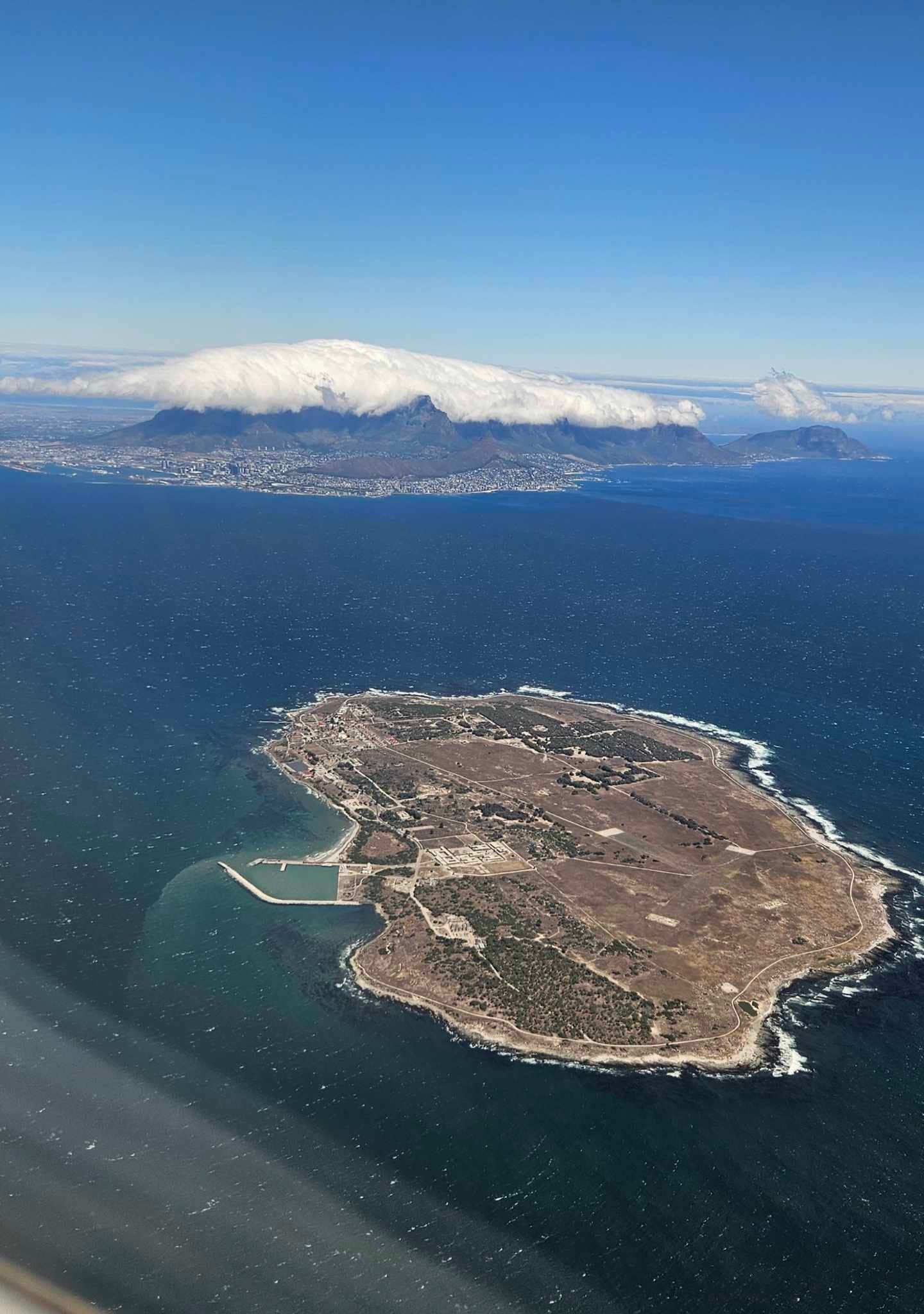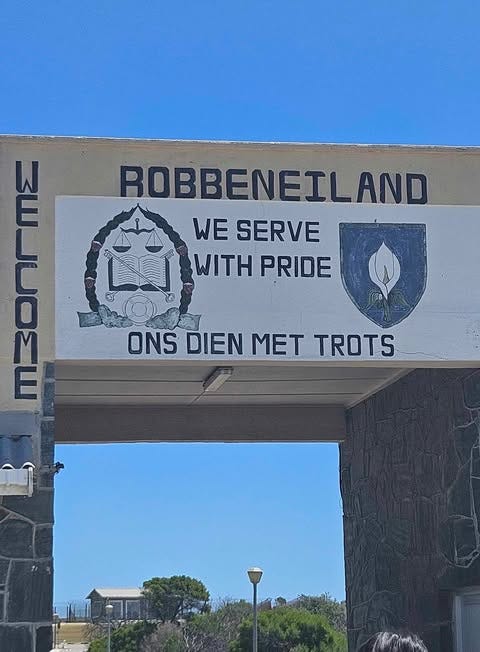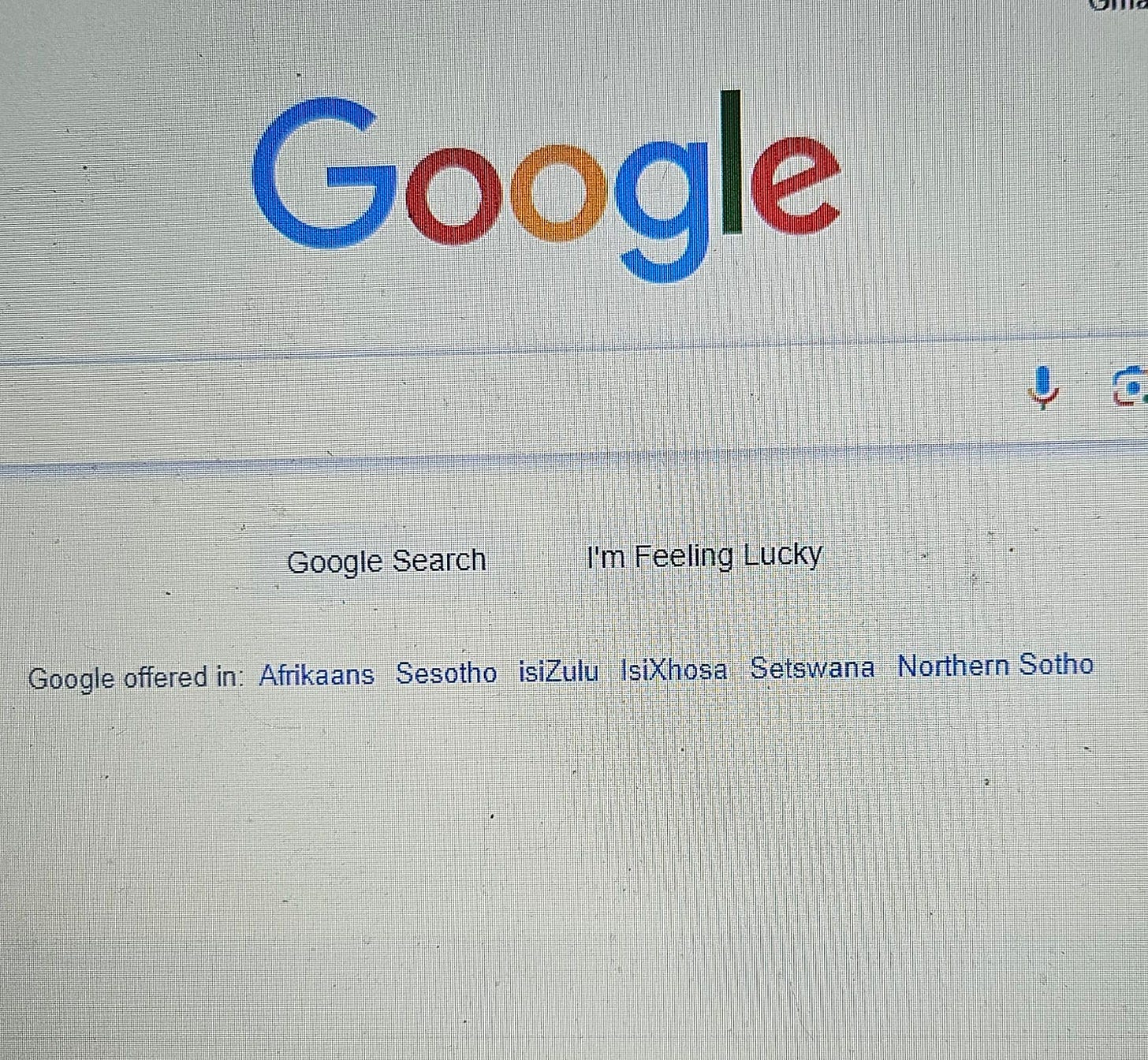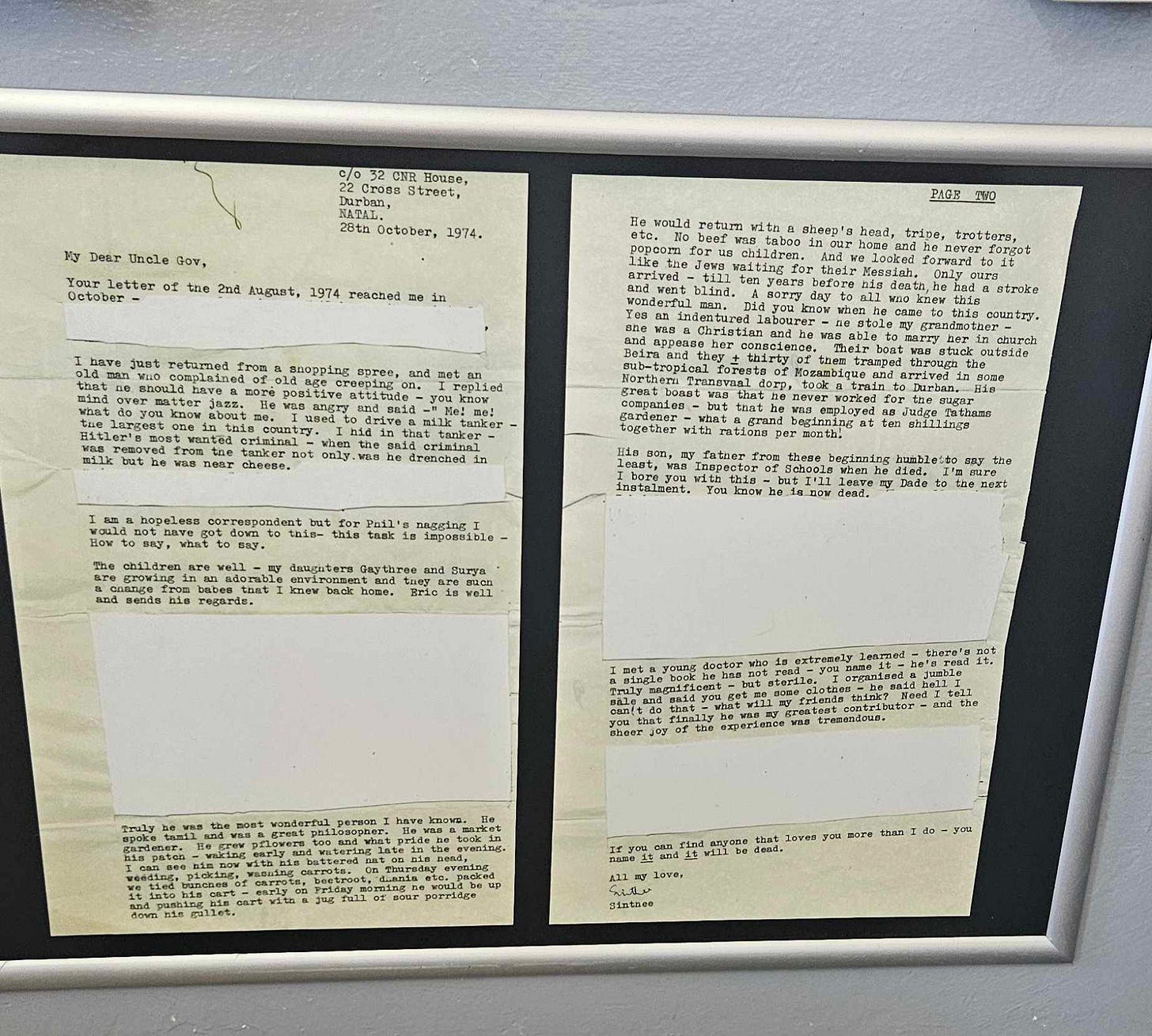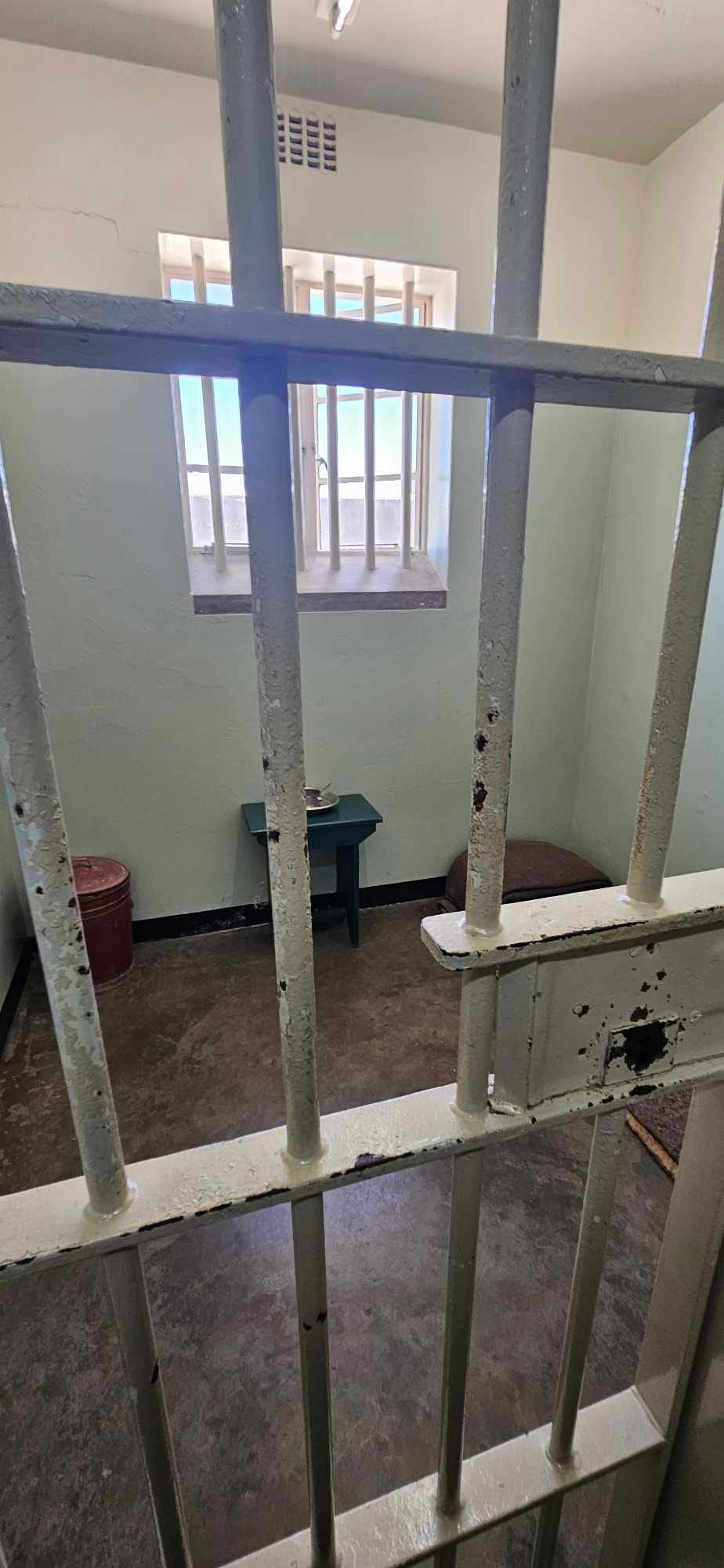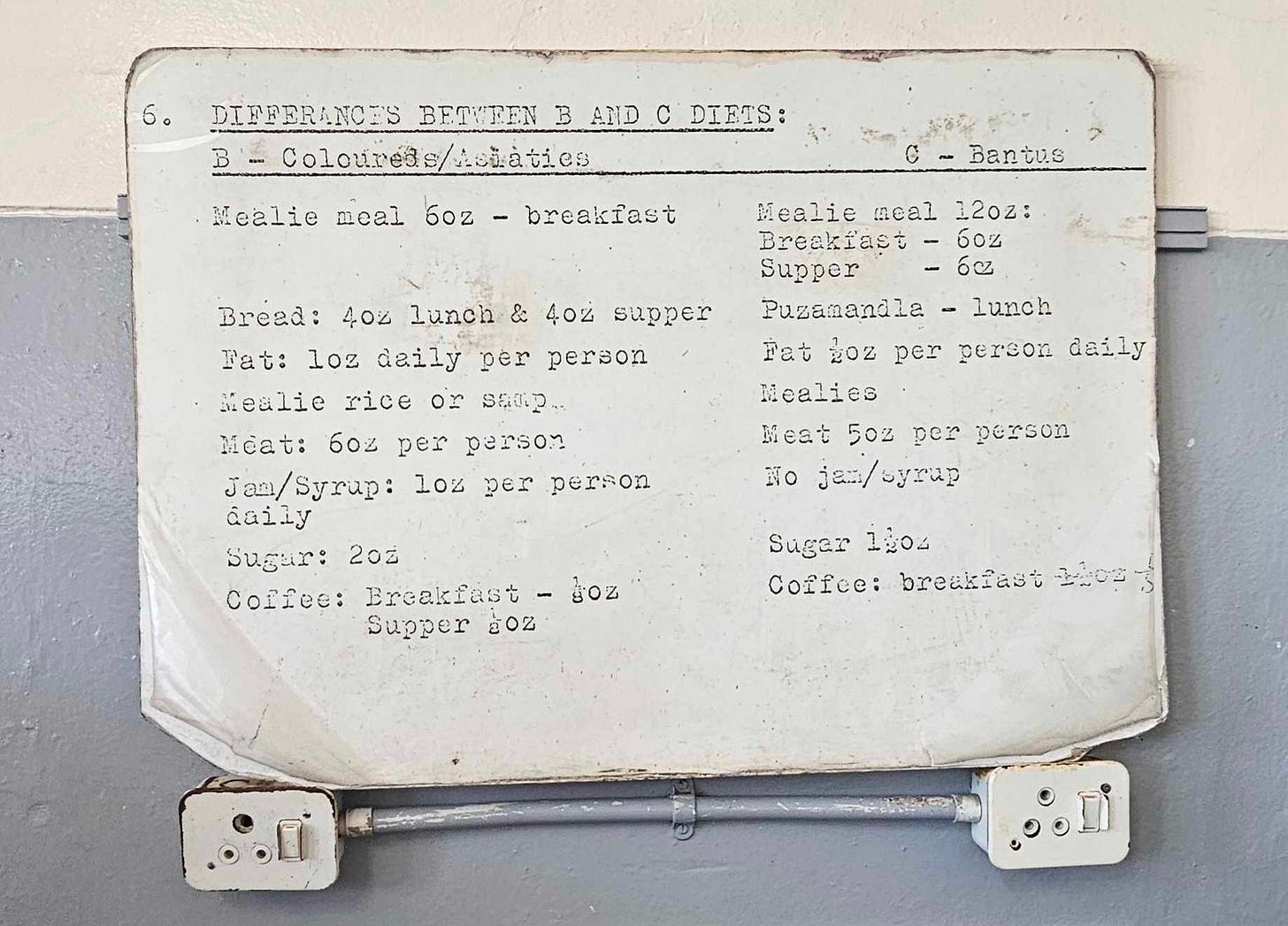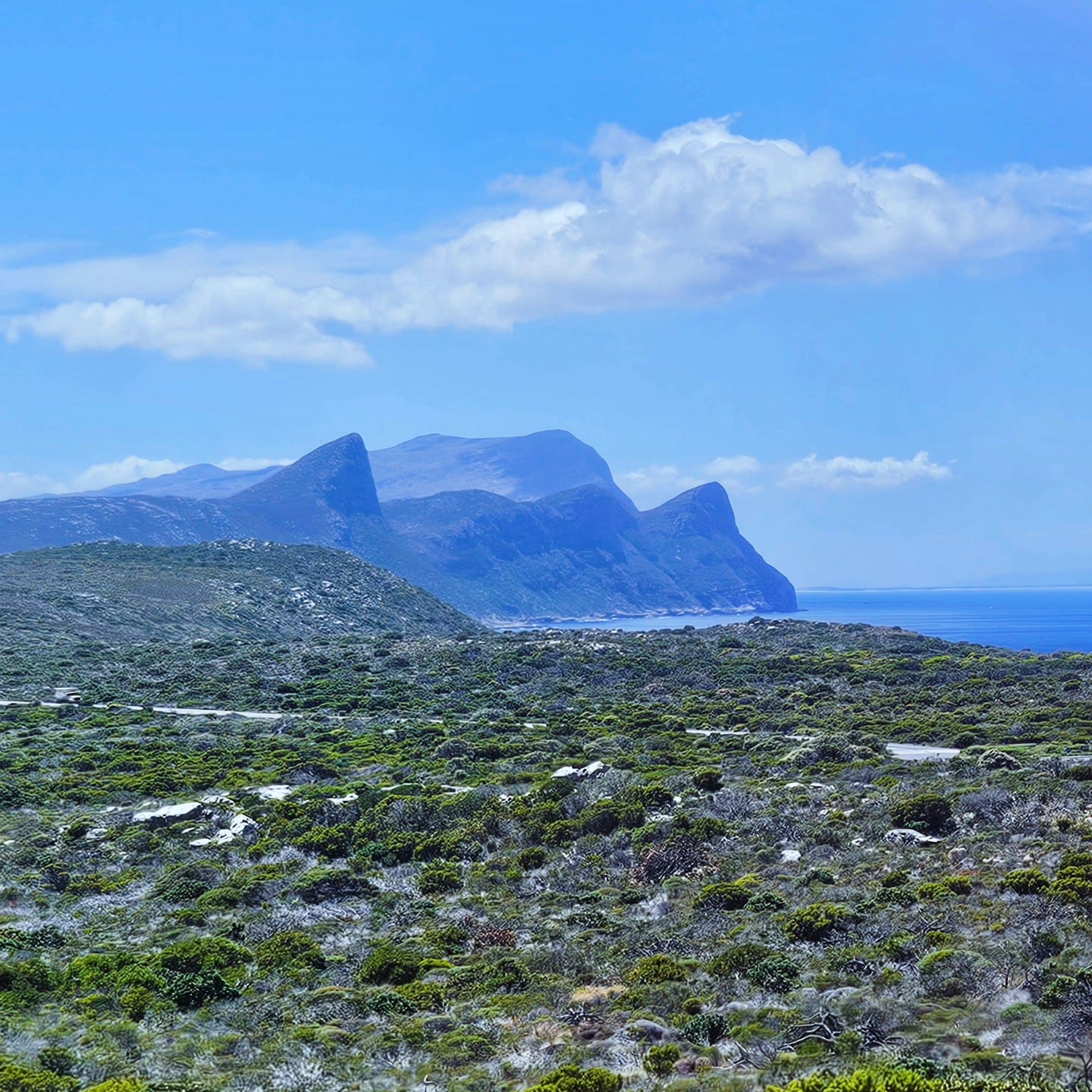Get up, stand up
don't give up the fight
The other day in a bar in Cape Town, I met a guy who had no idea who the President of the United States was. That is to say, he knew of the man in question, he just didn't know he was President. "Really?" He said, as his friends laughed and teased him. "THAT guy? Really?" And then he laughed and laughed and laughed.
In fact, this wasn’t as weird at is sounds, because at that moment, I didn’t know who the President of South Africa was. (I do now: it’s Cyril Ramaphosa.) And it certainly made me relax a little bit to know that not everyone on the planet thinks about America every waking moment; just to know that allows oneself to unclench one’s terrified mind, albeit briefly. (For what it’s worth, I also met a young french surfer guy on a bus here who didn’t know who Green Day was. We were stuck in traffic created by others trying to get to their sold out stadium show. I told him they were a band, and he said, “Are they good?”
I had to think for a second before responding. “Well…they’re an old school punk band,” I said, and he made the universal French sound of dismissal. It isn’t really a fair description of Green Day, but I didn’t know what else to say.)
South Africa is just supposed to be a stopping off place for me, on my way to another destination, so I hadn't really thought much about studying up its political history before I got there. I was just glad that I was soaring away from mine. That’s why it wasn’t until I was on the boat to Robben Island and they were playing video clips of anti-Apartheid demonstrations in America in the early 1980s that I remembered that South Africa was the Palestine of my generation in college. We all participated in protests on Sproul Plaza to get UC to divest, and when my Uncle invited me on a visit there with him, I refused, offended that he'd even asked me.
But life is long and things change and here I am over 30 years on, and on a boat to Robben Island, where Nelson Mandela was imprisoned for 18 years for protesting apartheid, and it felt...I don't know how to describe it. Heavy, but also sweet, and also germane to the times we live in. You could dismiss visiting Robben Island as mere trauma tourism, but everyone loves a good prison, whether it's the Clink in London or Alcatraz in San Francisco, and Robben Island is, like Table Mountain, a must-go site if you're ever in Cape Town. Both are world heritage sites, and both are monstrous (in different ways), and you can see both of them from each other. Indeed, it's almost like they are eyeing each other warily: the gigantic mountain reminding the tiny island that people don't much matter in the scheme of things, and the island reminding the mountain that man is truly vile.
Stepping out on Table Mountain, the ancient 3500 foot high rock formation that looms over the edge of Africa, feels exactly like stepping out of an airplane, and when you look out at the horizon, it feels like you can almost see Antarctica. Way off in the distance, you can see Robben Island, looking flat and benign rather than what it was, a place of physical and psychological torture intended to enforce racism and extreme injustice.
Robben Island used to be just a normal run of the mill evil prison island and leper colony, but starting in the early 1960s when anti-apartheid protests began in earnest, it started to house political prisoners and then it became something crueler and more pointed, a real life version of the Apple TV series Silo. Our guide, who was one of them, took us on a tour through the barracks and gave us a number of revolting facts including, but not limited to, these:
--1300 men were crammed into a space meant for 650
--In summer (wrongly defined to include winter weather) they slept on hard mats with no blankets
--They quarried lime which made many go blind.
--They weren't allowed to speak in any language except English and Afrikaans, meaning some had to go silent. This was so the guards could always understand what they were saying.
--They could write 2 letters home a year, of 500 words each, and incoming letters were so heavily censored they were often unreadable, just the salutations.
--They were recorded through the intercoms, just like in Silo.
--In solitary confinement there weren't allowed books or light, even, and they took away your mat all day so you couldn't lie down on the stone floor in any comfort.
--Clothes and food were unequally distributed by race: Asiatic/coloured prisoners received more of it than so called “Bantus” or Africans (there were no whites housed there as prisoners, obviously). For example, the Asiatics got long pants, shoes, socks and underwear, and Bantus only got shorts and sandals and no undies. They also didn't receive bread, jam or sugar and got less meat and fat. Supposedly this was because it was "scientifically proven" that Africans needed less warmth, and these are just a few of the horrible things that were intended to break the spirit of the prisoners there.
But here's the thing about Robben Island and why going to it is a positive, rather than a negative, experience: it was a complete failure. It was a project meant to end political dissent and breakup anti-apartheid movements, and instead, it fomented them. Just as the racist rules were meant to split the prisoners apart, and instead it made them stronger and more resilient, so too did locking up the leaders helped to make their movement into a worldwide cause until the South African government had no choice to capitulate.
That was all a long time ago, of course, but not really that long, since I remember it, and one result is that I can’t help but feel slightly terrible about the white people I see here who are older than I am. They might have been secret freedom fighters, for all I know, but the odds are that they weren’t. On the airplane I was seated next to a man and his super elderly father, an Afrikaaner returning to his homeland, and although the man had dementia and seemed harmless enough, I couldn’t help but look at him askance. I wondered what awful things he’d seen and had maybe even condoned in some way, and it occurred to me that in years to come, people will look at Americans that way on airplanes, like we secretly smell. And we will deserve it, is the thing. We will deserve it.
The man who guided us through Robben Island was 19 when he was imprisoned, and was freed six years later when everyone else was. He described to us how scary it was, as a 19 year old, to be put in leg chains and then in the bottom of the boat that took them out there, just like actual slaves....although it was the 1980s, within many of our lifetimes. At that time he had never been on a boat, or seen the sea. In the prison, there was testimony from some of the prisoners who said it was both the best, and worst, times of their life, the worst because it was horrible and they suffered, but the best, because they were able to band together and rise up in a battle that they ultimately won. In the end, Robben Island stands out as a place - maybe the only place -- where bad things led to good ones, and in this week of all weeks it's been really uplifting to have gone there.
Cape Town is just a stopping off place for me, however, I have a different destination in mind. So far I have been thwarted in my attempt to get there, as the airplane keeps canceling or turning back...and I feel like that's an allegory for both future of America and for me - we are both like a ship trying to round the Cape of Good Hope in high seas, and there are rocks ahead.


